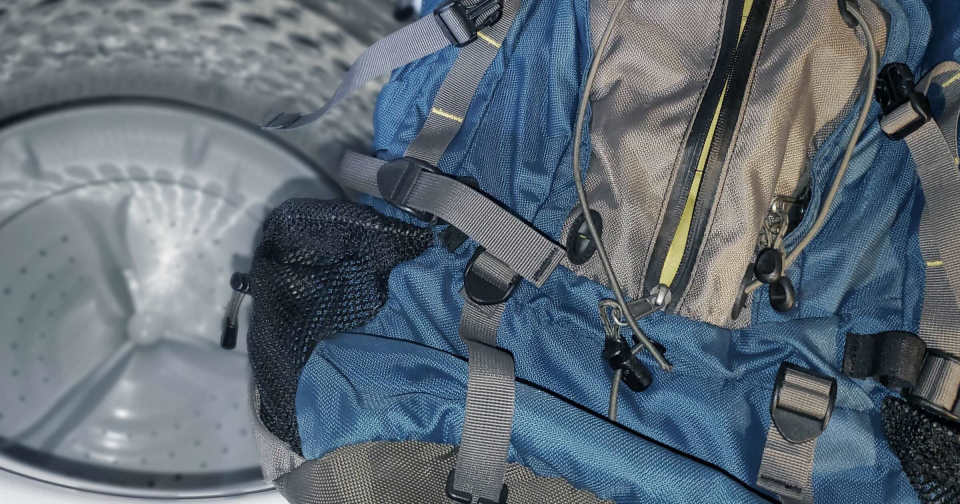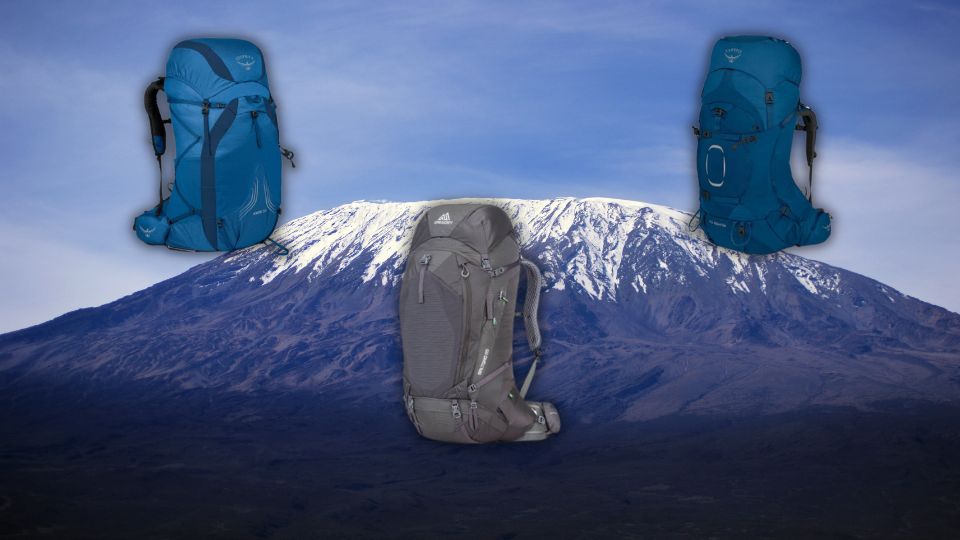Camping is a popular activity with people of all ages and backgrounds. It’s a great way to connect with nature, relax and unwind, and spend quality time with friends and family. However, camping in the summer heat can prove to be a challenging experience for some. Despite the challenges, if done right, it can be a rewarding experience that helps you build lasting memories.
One of the biggest challenges when camping in summer is the heat. The heat can make sleeping at night uncomfortable, and activities during the day exhausting. However, with the right planning and preparation, you can make the most out of your camping trip and have a great time.
The key to a successful summer camping trip is choosing the right gear. You need to have equipment that can help you stay cool, comfortable, and safe during your trip. This includes a good tent, a cooler with ice, sunscreen, and bug spray, among other things.
- You need a tent that’s well-ventilated to allow air to flow freely and keep you cool during the nights.
- A cooler with ice will keep your drinks and food fresh even in scorching temperatures.
- Sunscreen is essential to keep you protected from the sun’s harmful rays.
- Bug spray will help keep insects and other pests at bay, reducing the chances of bites and stings.
When choosing a campsite, look for a location that offers shade and cool breezes. This can help keep you cool during the day and make your camping experience more enjoyable. Setting up your campsite in a way that maximizes airflow and creates a comfortable sleeping area is also essential.
Staying hydrated is another critical factor when camping in the summer heat. You must drink enough water to avoid dehydration, which can cause headaches, fatigue, and other severe health problems. Planning your activities is also essential. You should engage in outdoor activities that help you stay cool, such as swimming, hiking, and fishing.
Cooking and eating in hot weather can be challenging, so it’s essential to take extra precautions to ensure your food stays fresh and safe to eat. You should be aware of how to store your food correctly and avoid leaving food out in the sun for too long.
Lastly, it’s crucial to take precautions against insects and other summer pests. Wearing long sleeves and pants, using bug spray, and avoiding camping near still water bodies are some of the effective ways to keep bugs and other pests at bay.
In conclusion, camping in the summer heat can be a challenging experience, but with the right preparation, it can be a rewarding experience that strengthens your connection with nature, friends and family, and creates lasting memories. By choosing the right gear, finding the best campsite, staying hydrated, planning your activities, and taking precautions against pests and other challenges, you can have a successful and enjoyable summer camping trip.

Choosing the Right Gear
Summer is the perfect time to enjoy the outdoors, but camping in the heat can be a challenge. To spend your days camping comfortably, it is essential to have the right gear that can help you stay cool and refreshed. Here are some essential equipment that you need to have while camping in the summer heat:
Cooling Clothing and Accessories – To beat the heat, you need to keep your body cool, and the best way to do that is by wearing the appropriate clothing. Look for clothing made of light-colored, moisture-wicking, and breathable fabrics that can help you stay cool and sweat-free. A hat is also essential to keep the sun off your face and eyes, and sunglasses to keep your eyes cool and protected from harmful UV rays.
Tents and Sleeping Bags – It is essential to choose a tent and sleeping bag that can keep you cool in the summer heat. Look for tents with plenty of mesh panels and vents that can allow good ventilation and airflow. Sleeping bags made of light-colored and breathable materials can also help you stay cool on hot summer nights.
Cooling Devices and Accessories – Carrying cooling devices can also help you stay cool and refreshed while camping in the summer heat. A battery-operated fan or a portable air conditioner can help circulate cold air inside the tent and keep the temperature cool. Portable misters can also be used to mist water over your face and body, keeping you fresh and cool in the hot sun.
| Cooling Gear | Description |
|---|---|
| Cooling Towels | These towels can be soaked in water and wrung out to stay cool for hours. |
| Portable fans | These fans can keep the tent cool by circulating air inside the tent. |
| Insulated Water Bottles | These bottles can keep your water cold for hours, ensuring that you stay hydrated while camping. |
| UV Protective Shirts | Lightweight, breathable and moisture-wicking shirts that protect your skin from harmful UV rays. |
Choosing the right gear for camping in the summer heat can make all the difference between a miserable experience and enjoying the outdoors comfortably. Make sure you invest in high-quality gear that can keep you cool, refreshed, and hydrated. With the right gear, you can have an enjoyable and memorable camping experience even in the hottest weather.
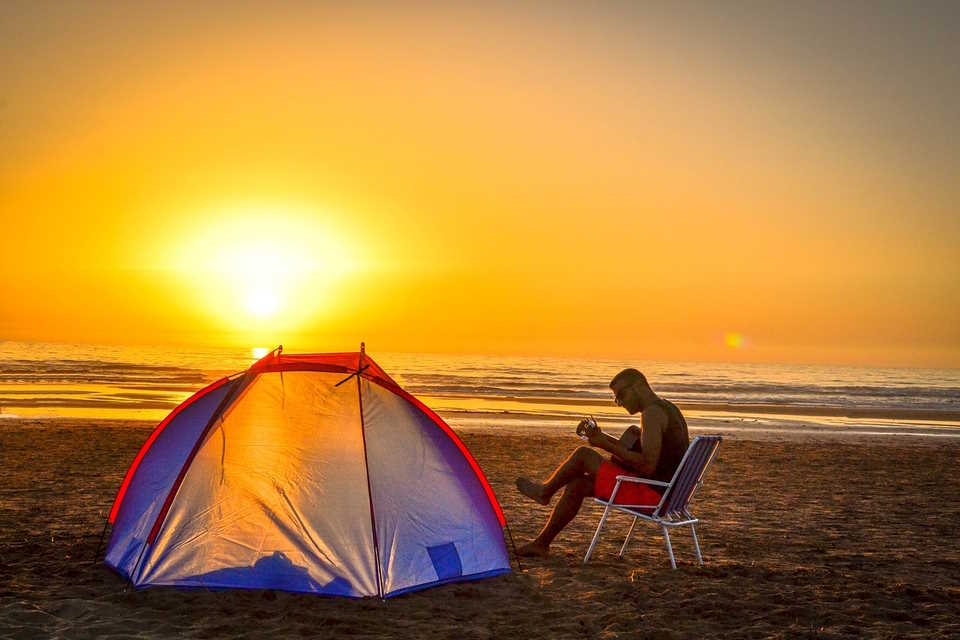
Finding the Best Campsite
When it comes to summer camping, selecting the right campsite can make all the difference in your camping experience. The summer heat can be unbearable, making it challenging to stay cool and comfortable. However, with a little planning and research, you can find the best campsite that offers shade and cool breezes.
1. Check the Weather Forecast
The first rule of camping is never to ignore the weather. Summer can be unpredictable, so it’s always better to check the weather forecast before selecting your camping site. Look for a place with a forecast that includes cool temperatures and even a chance of rain. It would be best if you avoid the areas with high temperatures that may cause heat exhaustion or dehydration.
2. Shade
The temperature can drop significantly when you are in shade. Therefore, look for a spot that has plenty of trees or a natural canopy for your tent or other camping gear. Make sure that your tent is positioned in such a way that it doesn’t get direct sunlight during the hottest part of the day.

3. Altitude
Higher altitudes offer cooler temperatures, which make them ideal for summer camping. Look for a place that is at a higher elevation, but make sure it’s not too high that it becomes challenging to breathe. Normally, campers can take the elevation of up to 8,000-10,000 feet above sea level.
4. Water Source
It would help if you looked for a site near a water source, such as a lake, stream, or river. Bodies of water can provide natural cooling, and you can take a dip to cool off during the hottest part of the day. It’s essential to be cautious while swimming or water activities as It can become dangerous if you are not familiar with the water source.
5. Wind
Wind can help keep you cool during the hot summer days, so look for campsites near or on a hill – this will increase the chance of getting a continuous supply of breezes.
These are some tips that can help you in selecting a campsite that offers shade and cool breezes. By following these tips, you can have a more comfortable and enjoyable summer camping trip. So, pack your bags, grab your camping gear and get ready to enjoy the great outdoors!
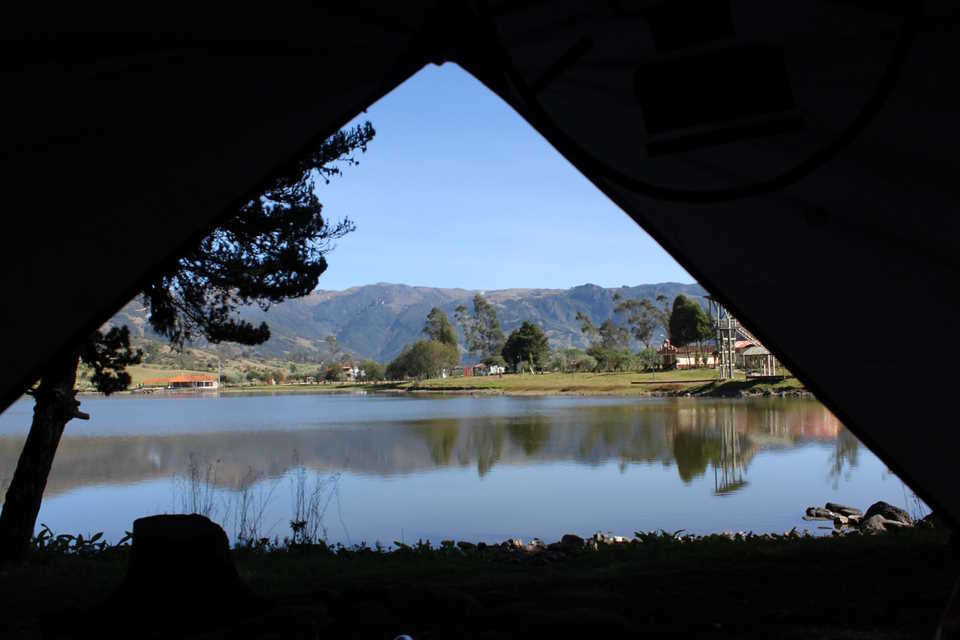
Setting Up Your Campsite
When it comes to camping in the summer heat, one of the biggest challenges is staying cool and comfortable. While finding a shady campsite and staying hydrated are important, setting up your campsite properly can go a long way in maximizing airflow and creating a comfortable sleeping area.
First and foremost, it’s important to choose a campsite that offers plenty of shade. Look for trees or other natural objects that can offer some protection from the sun. Additionally, try to set up your tent facing the direction of the prevailing wind. This will help maximize airflow and keep your tent cool.
Next, consider investing in a few key pieces of gear to help keep your tent cool. A fan can provide much-needed air circulation on hot summer nights. Additionally, a shade canopy can help protect your tent from direct sunlight during the day.
- Choose a shady campsite
- Set up your tent facing the direction of the prevailing wind
- Invest in a fan and shade canopy
When setting up your tent, make sure to pitch it tautly. This will allow for optimal ventilation and airflow. Additionally, consider using an insulating groundsheet or tarp underneath your tent to help keep it cool.
Finally, when it comes to sleeping, be sure to bring the right gear. A lightweight sleeping bag and breathable bedding can help you stay cool at night. Additionally, consider using a camping pillow to elevate your head and encourage air circulation.

| Key Strategies for Setting Up Your Campsite: |
|---|
| Choose a shady campsite |
| Set up your tent facing the direction of the prevailing wind |
| Invest in a fan and shade canopy |
| Pitch your tent tautly for optimal ventilation |
| Use an insulating groundsheet or tarp underneath your tent |
| Bring lightweight, breathable bedding and a camping pillow |
By following these tips, you can set up your campsite for maximum comfort and airflow. With a little planning and preparation, you can enjoy a cool and comfortable camping experience even in the hottest summer weather.
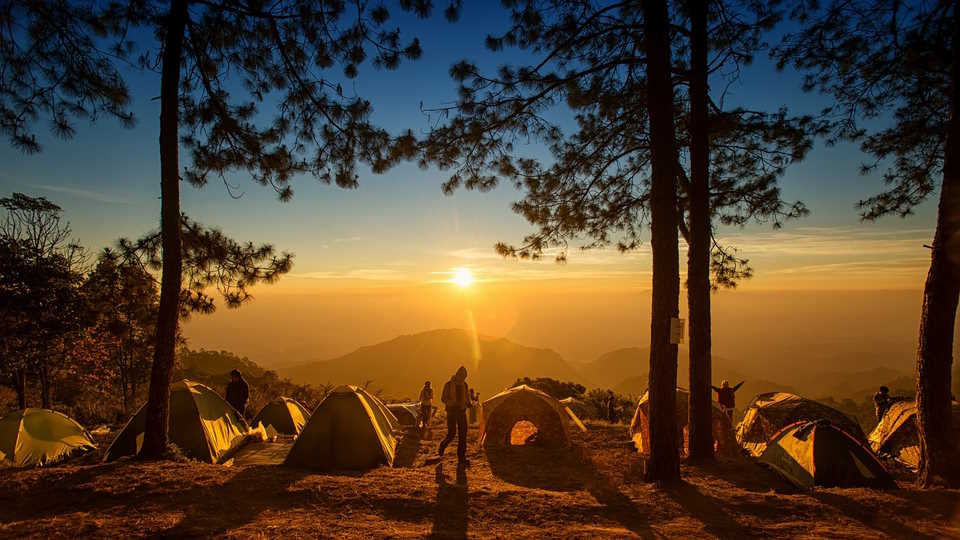
Staying Hydrated
Staying hydrated is crucial when camping in the summer heat. Dehydration can lead to a range of problems, from fatigue and headaches to more serious health issues. Here are some tips to help you stay hydrated and healthy on your camping trip:
1. Drink Water Frequently
It’s important to drink water throughout the day, even if you don’t feel thirsty. When you’re camping, you’re likely to be sweating more than usual, which means you’ll need to drink even more water than normal. Aim for at least 2-3 liters of water per day, or more if you’re doing strenuous activities.
2. Carry Water with You
Make sure you have enough water with you at all times. It’s a good idea to bring a reusable water bottle or hydration pack, so you can easily carry water with you as you hike or explore your campsite. Remember to refill your water bottle regularly throughout the day.
3. Drink Water Before You’re Thirsty
By the time you feel thirsty, you’re probably already dehydrated. To avoid this, make a habit of drinking water regularly throughout the day. If you’re doing an activity that’s particularly strenuous or you’re sweating a lot, drink water even if you don’t feel thirsty.

4. Avoid Caffeine and Alcohol
Caffeine and alcohol can both dehydrate you, so it’s best to avoid them when you’re camping in the summer heat. Stick to water, sports drinks, and other non-alcoholic, non-caffeinated beverages.
5. Eat Foods with High Water Content
Some foods, such as fruits and vegetables, have a high water content, which can help keep you hydrated. Consider bringing snacks like watermelon, cucumber, or grapes, which can help supplement your hydration levels.
Staying hydrated is essential for staying healthy and safe while camping in the summer heat. By following these tips, you can ensure that you’re getting enough water to keep your body functioning properly.
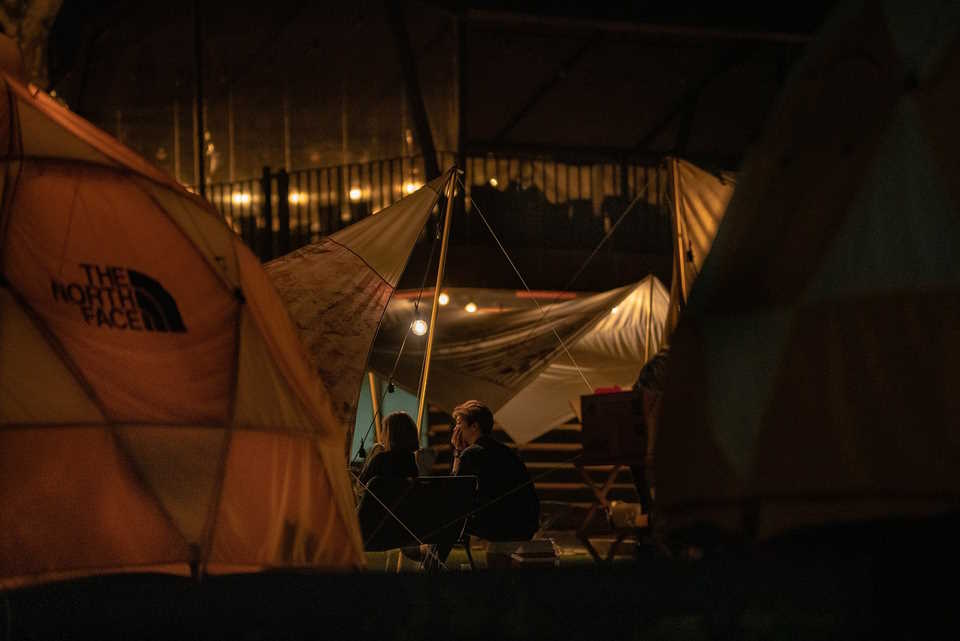
Planning Your Activities
Summer camping can be an exciting and fun-filled adventure. However, the heat can sometimes be uncomfortable and cause exhaustion. One of the ways to combat this is by engaging in outdoor activities that help you stay cool while enjoying the great outdoors. Here are some ideas to consider:
- Swimming: No camping trip is complete without a refreshing swim in a river or a lake. It is a great way to cool down, relax and have fun. Remember to bring your swimsuit, flip-flops and a towel.
- Hiking: Hiking in the mountains or forest can offer cool shade while exploring nature. Carry a backpack with plenty of water, sunglasses, a hat and sunscreen, and enjoy the beautiful scenery.
- Kayaking: Paddling in the water is an excellent way to stay cool on hot summer days. Kayaking can also give you an opportunity to explore picturesque waterways, see wildlife and create memories.
- Biking: Biking is an eco-friendly way to explore new terrains, get some exercise, and have fun while enjoying the summer breeze. Make sure to wear a helmet, carry water bottles, and map out your route beforehand.
- Nature Walks: Short nature walks are also great ways to cool down while exploring the outdoors. They enable you to learn about wildlife and plants, breathe fresh air, and exercise.
- Rock Climbing: For the more adventurous campers, rock climbing can also be an excellent way to beat the heat. Climbing in the shade of a mountain or a forest, can offer a cool breeze and breathtaking views.
When planning your activities, remember to consider the weather, your physical fitness level, and the terrain. Choose activities that are suitable for your group, and that everyone will enjoy. Ensure that you carry enough water and snacks for energy, plan for rest breaks, and choose a location that is safe.
By including these outdoor activities in your camping trip, you will remain cool, have fun and appreciate the beauty of nature. What are your favorite outdoor activities to do while camping?

Cooking and Eating in the Heat
Summer is the perfect time for camping when days are longer, and temperatures rise. While it’s great to be outside enjoying nature, the heat can be unbearable. Preparing and storing food in hot weather requires extra caution so that it does not spoil or become a breeding ground for bacteria.
Here are some tips to help you prepare your meals while camping in the heat:
- Plan your meals before leaving home, so you don’t have to spend a lot of time cooking in the heat. You can precook some meals and freeze them beforehand to reheat them later on the campsite.
- Invest in a high-quality cooler to keep your food fresh for longer.
- Store food in sealed containers or plastic bags to prevent moisture and insects from spoiling it.
- When grocery shopping, purchase food that doesn’t require refrigeration, such as canned goods, dry goods, and fresh produce, which can be stored in a cooler or refrigerator on the campsite.
- Choose foods that are easy to prepare and cook, such as sandwiches, salads, and one-pot recipes.
Here are some additional tips to help you stay safe while cooking and eating in the heat:
- Wash your hands thoroughly before handling food to reduce the risk of contamination.
- Avoid using mayonnaise-based dressings or sauces that can go bad quickly in the heat. Instead, opt for vinegar or citrus-based dressings.
- Use a thermometer to ensure that food is cooked to the correct temperature, especially meat and poultry, which can cause food poisoning if undercooked.
- Cook food well in advance before the heat of the day to avoid cooking in the mid-day heat.
By following these tips, you can ensure that your meals are safe, healthy, and enjoyable while camping in the summer heat.

Dealing with Insects and Other Pests
Summer is the perfect time to unwind and connect with nature, but it also brings with it the challenge of dealing with pesky insects and other pests that can ruin your camping experience. However, with a few simple strategies in place, you can avoid bites and stings and enjoy your time in the great outdoors. Here are some tips to help you deal with insects and other pests while camping:
- Choose the right clothing: Wearing light-colored, loose-fitting clothes can help you stay cool and also make it harder for insects to bite you. Avoid dark colors, as they can attract bugs. Additionally, use insect repellent on your skin and clothing to keep mosquitoes, ticks, and other pests at bay.
- Use natural remedies: Certain plants like eucalyptus, lavender, and lemon balm can help repel mosquitoes and other insects, so consider bringing some essential oils or candles with you on your camping trip. You can also try using natural insect sprays that are safe for humans and the environment.
- Keep your campsite clean: Always clean up after yourself and properly dispose of any food scraps or trash, as they can attract animals that can carry disease. Also consider bringing a portable trash can or bear canister to store your food items out of reach of wildlife.
By following these simple strategies, you can reduce your risk of insect bites and animal encounters while camping. Remember, prevention is key when it comes to dealing with pests in the great outdoors.

Conclusion
Camping in the summer heat can be both rewarding and challenging. While the sunshine, fresh air and beautiful scenery are definite perks, the heat and humidity can make it difficult to get comfortable and enjoy the experience. However, with the right preparation and equipment, you can beat the heat and enjoy your camping trip to the fullest.
Choosing the right gear is essential when it comes to staying cool and comfortable in the heat. Lightweight, breathable clothing, wide-brimmed hats, and sunscreen are all must-haves. In addition, investing in a high-quality tent with proper ventilation and shade can make all the difference.
Finding the best campsite is also crucial for staying cool in the heat. Look for a location that offers shade and plenty of airflow. Avoid setting up camp in direct sunlight or on pavement or other heat-absorbing surfaces.
Once you have found the perfect location, it’s time to set up your campsite. Maximize airflow by setting up your tent in a spot that catches the breeze. Create a comfortable sleeping area by using a cot or air mattress rather than sleeping directly on the ground.
Staying hydrated is one of the most important things you can do when camping in the heat. Be sure to drink plenty of water throughout the day, even if you don’t feel thirsty. Remember that sugary drinks and alcohol can dehydrate you even further, so it’s best to avoid them.
When planning your activities, consider outdoor activities that help you stay cool. Swimming, kayaking, and hiking in shaded areas are all great options. Avoid strenuous activities during the hottest part of the day.
Cooking and eating in the heat can be challenging, but there are ways to make it easier. Plan meals ahead of time and opt for light, refreshing dishes that don’t require a lot of cooking or prep time. Use a cooler to keep food and drinks cold, and be sure to store food properly to avoid spoilage.
Dealing with insects and other pests can be a hassle when camping in the summer. To avoid bites and stings, wear long sleeves and pants, use insect repellent, and avoid wearing scented products. Keep your campsite clean and free of food scraps, and use citronella candles or mosquito nets to keep bugs at bay.
In conclusion, camping in the summer heat can be a wonderful experience if you are prepared. By choosing the right gear, finding a suitable campsite, setting up your campsite properly, staying hydrated, planning your activities, cooking and eating smart, and avoiding insect bites and stings, you can beat the heat and enjoy your camping trip to the fullest. With these key strategies in mind, you’ll be able to make lasting memories while enjoying the great outdoors.



